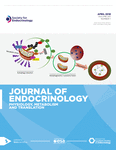The most common vices of men can damage fertility and the health of the next generation
- 1Discipline of Obstetrics & Gynaecology, Adelaide Medical School, Robinson Research Institute, The University of Adelaide, Adelaide, South Australia, Australia
- 2Freemason’s Foundation Centre for Men’s Health, The University of Adelaide, Adelaide, South Australia, Australia
- 3Monash IVF Group, Melbourne, Victoria, Australia
- Correspondence should be addressed to T Fullston; Email: tod.fullston{at}adelaide.edu.au
Abstract
Animal and human studies demonstrate that acquired paternal traits can impair both a male’s fertility and the health of his offspring, including advanced age, smoking, stress, trauma, under-nutrition, infection, toxin exposure, and obesity. Many of these factors lead to similar changes to neurological, behavioural, and/or metabolic functioning in offspring. The molecular mechanisms that both respond to the paternal environment and act to transmit traits to offspring are beginning to emerge. This review focuses on three vices of men (alcohol consumption, overweight/obesity, and tobacco smoking) that damage fertility and pose risks to offspring health. These vices are not only the three most prevalent but are also leading risk factors for death and disability adjusted life years (DALYs) worldwide. Moreover, given that these vices are predominantly self-inflicted, interventions aimed at mitigating their consequences are readily identified.
- Received 2 May 2017
- Accepted 12 May 2017
- Made available online as an Accepted Preprint 12 May 2017
- © 2017 Society for Endocrinology











